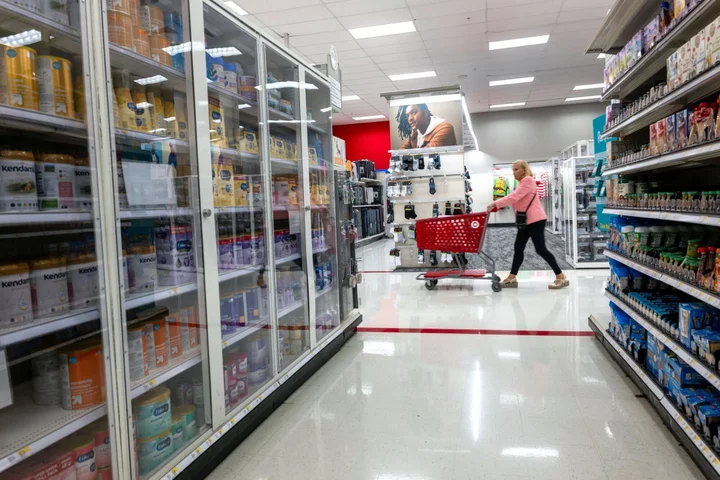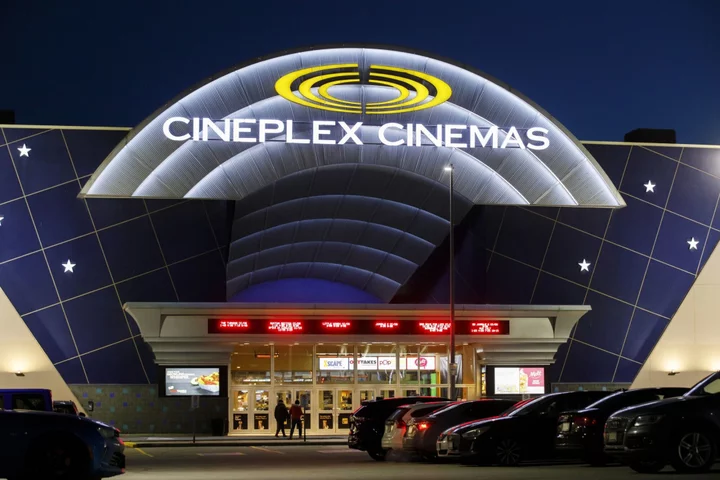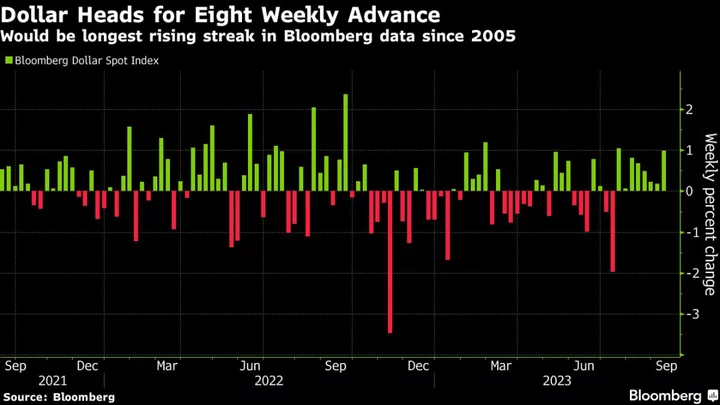Like many shoppers, New Yorker Sarah Henry is accustomed to retailers locking up products to thwart thieves. But when she saw a Manhattan CVS had put Oreos behind glass, she took a photo to document the insanity.
“It’s just crazy, everything’s locked up,” she said. “You can’t even get Oreos without ringing a bell, let alone cleaning supplies.” To sidestep the hassle, Henry has taken to ordering groceries and medication online from Stop & Shop Supermarket and Amazon.com Inc.
Retail industry watchers say her choice is becoming increasingly common.
Andrew Lipsman, an analyst at Insider Intelligence, points to a surge in online sales of personal health and beauty products, which account for a large share of locked-up merchandise. Even as e-commerce shopping has cooled since the pandemic, he said, the category continued to grow briskly and now accounts for 18.5% of total retail sales, up from 11.4% in 2019.
Lipsman said the shift in consumer behavior will accrue to any retailer with a strong e-commerce operation. But he said no company will benefit more from shoppers’ aversion to stores’ anti-theft tactics than Amazon, thanks to its market share and selection. “It’s sweet spot is consumer goods,” he said.
Retailers have been battling shoplifters for decades, but say store larceny has worsened dramatically since the pandemic — driven largely by criminal gangs that steal in bulk. Last year, theft-related losses surged 19% to $112.1 billion, according to a survey conducted by the National Retail Federation. During earnings conference calls last quarter, industry executives mentioned missing inventory and theft-related losses a record number of times, according to data compiled by Bloomberg.
The shoplifting scourge has prompted chains to close locations in particularly hard-hit areas. Target Corp. shuttered nine stores in four states in September. Retailers also are locking up a lot more stuff. Stores have typically protected items priced from $10 to $20, such as electric toothbrushes and razor blades, says Anne Zybowski, vice president of e-commerce at the market research firm Circana. Electronics and power tools are typically locked up too. But, now Zybowski says stores are locking up items selling for less than $10.
“It’s like an arms race between the offenders and the retailers,” said Cory Lowe, a senior researcher at the Loss Prevention Research Council, which develops anti-theft solutions for the industry. “Everyone is continuously ramping up in store security.”
In a growing number of stores, entire aisles are lined with locked glass cases. Making matters worse, the retail industry is suffering a severe labor shortage, meaning there aren’t enough salespeople to help customers retrieve locked items in a timely fashion.
Consumers’ growing frustration was captured in a shopper survey released last year by the LPRC. More than 60% of participants said locked merchandise was either inconvenient or very inconvenient, while over 20% said they’d rather order the item online than wait for an employee to open a case. Some said they were embarrassed when asking an employee to help retrieve medications and family-planning merchandise.
“Generally retailers hate locking cases,” Lowe said. “Their main concern is that they’re pushing business to their competitors, their e-commerce competitors.”
One answer: technology that deters thieves without alienating shoppers. The LPRC is testing something called the Freedom Case from Indyme, a San Diego-based company that makes a range of smart technology for the retail industry. To open the locker, shoppers enter a loyalty card number or phone number to receive a four-digit PIN or QR code. Indyme Chief Executive Officer Joe Budano says more than 30 retailers are using or testing the company’s products.
“The whole thing with Freedom Case is if you’re a legit shopper it should be easy,” he said. “But for offenders it should be very difficult to use.”
It will probably be years before such systems are widely deployed, however. And it’s not clear that an industry with famously skimpy margins will be prepared to spend the tens of millions of dollars required to retrofit stores.
In the meantime, researchers say frustrated shoppers like Jacqueline Mullin will continue buying locked-up merchandise online. A new mom from New Jersey, Mullin grew so tired of waiting upwards of 10 minutes for a salesperson to unlock baby formula that she now has Costco Wholesale Corp. deliver it.
“I would rather order from Costco to my house than bother an employee,” she said. “It’s frustrating. I want to be in and out of the store.”









